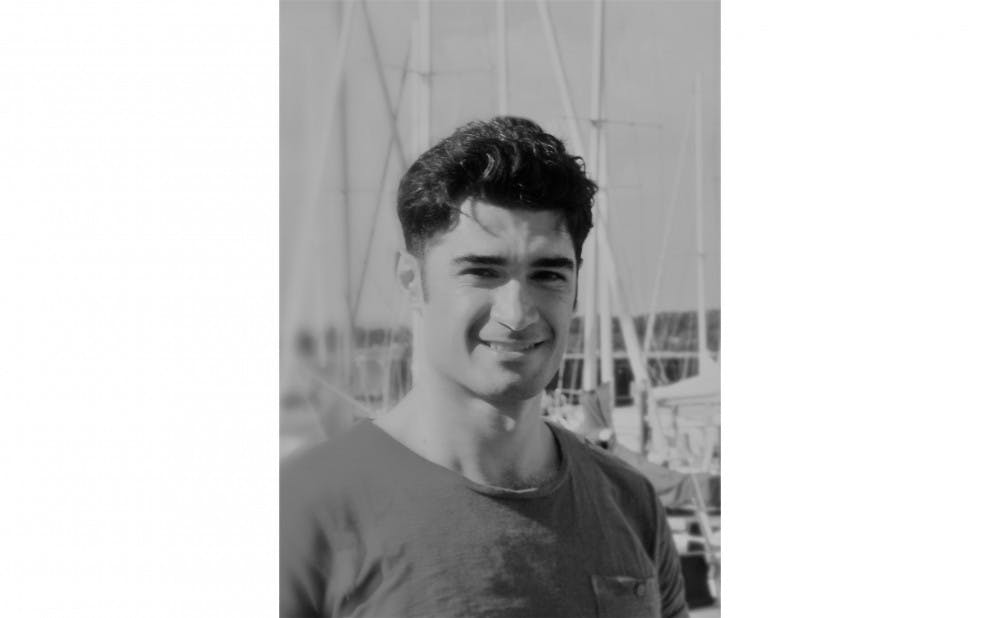Mehdi Ordikhani Seyedlar was on track to begin a postdoctoral position at Duke in one of the most prestigious biomedical engineering labs in the country. Then he saw the news on Saturday morning.
Seyedlar, who has completed a Ph.D. in biomedical engineering at the Technical University of Denmark, is an Iranian citizen. As a result, he is affected by the executive order implemented by the Trump administration Friday, which halts all immigration from seven predominantly Muslim countries, including Iran. The order has thrown Seyedlar’s future plans into doubt, as he will not be able to come to the United States in May to begin work at the Nicolelis Lab if the ban on immigration from Iran is not lifted.
“The first time I heard the news, I remember that I was having my breakfast with my wife, and then we were just completely shocked,” he said. “Everything is gone in just one day. And this is very frustrating.”
Seyedlar—who is currently in Denmark—was in the process of acquiring an American visa when the ban was announced.
“I got this offer as a postdoctoral associate, and right after my [thesis] defense, we started my visa procedure, which, in normal conditions, is a very long procedure for us,” he said. “So basically I was waiting for my visa. Normally it should have been issued promptly. A month from now, I would expect it. But now, as you know, visas have to wait.”
The Trump administration’s executive order currently suspends all immigration from Iran for 90 days, but the suspension could be extended if Iran does not supply additional information on visa applicants that the administration deems necessary for vetting applications.
In 2014, Seyedlar was actually at Duke, working at the Nicolelis Lab as a visiting scholar. His research involves processing brain signals so that they can be used in brain-machine interfaces. This work could help develop solutions for paralyzed individuals to regain movement by using an exoskeleton.
He said that during the visit he got to know people at the lab and decided that it was the place he wanted to work full-time.
“I worked on their projects. I’m very familiar with their lab,” Seyedlar said. “I know exactly what they are doing, and they know exactly what my skills and background are.”
As a result of the ban, he explained that he is now applying for positions in Canada and Europe. Although Seyedlar emphasized that his first choice is still Duke, he said that he is no longer confident the situation will resolve itself and that he will be able to come to the United States.
And Seyedlar said others in his family have also been impacted by the ban.
“My brother, he got a Ph.D. offer from the Missouri Institute of Science and Technology in November,” Seyedlar said. “We were super happy because he tried so hard. He was working to get his GRE and TOEFL [scores] at a level that he can get admitted. And finally he got very good scores, and he got this offer. Right now his situation is much worse than me, because I'm at least out of Iran, but he's inside. He’s also very depressed now.”
Seyedlar said that Duke has been in touch several times during the past few days offering him advice and updating him on the situation.
Michael Schoenfeld, vice president for public affairs and government relations, said that Duke is currently working through its visa office to address cases like Seyedlar's, but added that there is still uncertainty surrounding the executive order.
“He is not yet a Duke employee,” Schoenfeld wrote in an email. “Each situation is unique, and depending on the circumstances the options may be limited. There is still a great deal of confusion that we are all trying to sort through.”
Seyedlar said that he feels the situation is not right, and that a ban on immigration would hurt research.
“Judging people based on their nationality or religion or whatever...for me that makes no sense,” he said. “Previously I was a student, and yes I published some papers, maybe I developed some things, but real ideas come out as an independent researcher when you are a postdoc. I was very motivated to start cool jobs, but I can see that this is all in jeopardy, all in one day, and that’s not good for science.”
He added that the ban has given him doubts about his long-term prospects in the United States even if he is allowed to enter the country.
“It makes me a little bit uncertain because if the rules are changing so dramatically, you can't really trust,” he said. “I don't know [about staying in the US]. I have to think again.”
Get The Chronicle straight to your inbox
Signup for our weekly newsletter. Cancel at any time.

